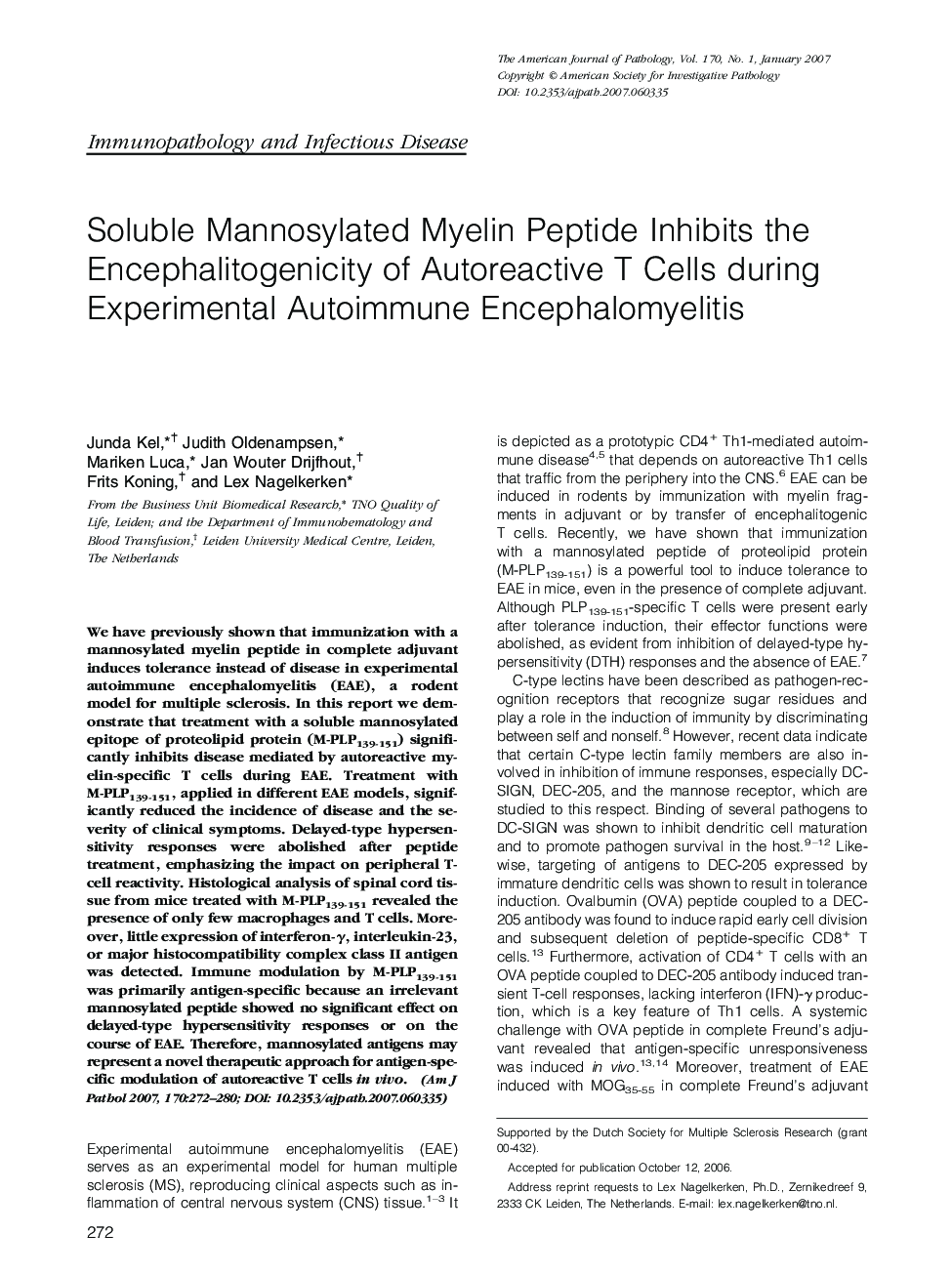| کد مقاله | کد نشریه | سال انتشار | مقاله انگلیسی | نسخه تمام متن |
|---|---|---|---|---|
| 2866186 | 1573482 | 2007 | 9 صفحه PDF | دانلود رایگان |

We have previously shown that immunization with a mannosylated myelin peptide in complete adjuvant induces tolerance instead of disease in experimental autoimmune encephalomyelitis (EAE), a rodent model for multiple sclerosis. In this report we demonstrate that treatment with a soluble mannosylated epitope of proteolipid protein (M-PLP139-151) significantly inhibits disease mediated by autoreactive myelin-specific T cells during EAE. Treatment with M-PLP139-151, applied in different EAE models, significantly reduced the incidence of disease and the severity of clinical symptoms. Delayed-type hypersensitivity responses were abolished after peptide treatment, emphasizing the impact on peripheral T-cell reactivity. Histological analysis of spinal cord tissue from mice treated with M-PLP139-151 revealed the presence of only few macrophages and T cells. Moreover, little expression of interferon-γ, interleukin-23, or major histocompatibility complex class II antigen was detected. Immune modulation by M-PLP139-151 was primarily antigen-specific because an irrelevant mannosylated peptide showed no significant effect on delayed-type hypersensitivity responses or on the course of EAE. Therefore, mannosylated antigens may represent a novel therapeutic approach for antigen-specific modulation of autoreactive T cells in vivo.
Journal: The American Journal of Pathology - Volume 170, Issue 1, January 2007, Pages 272–280